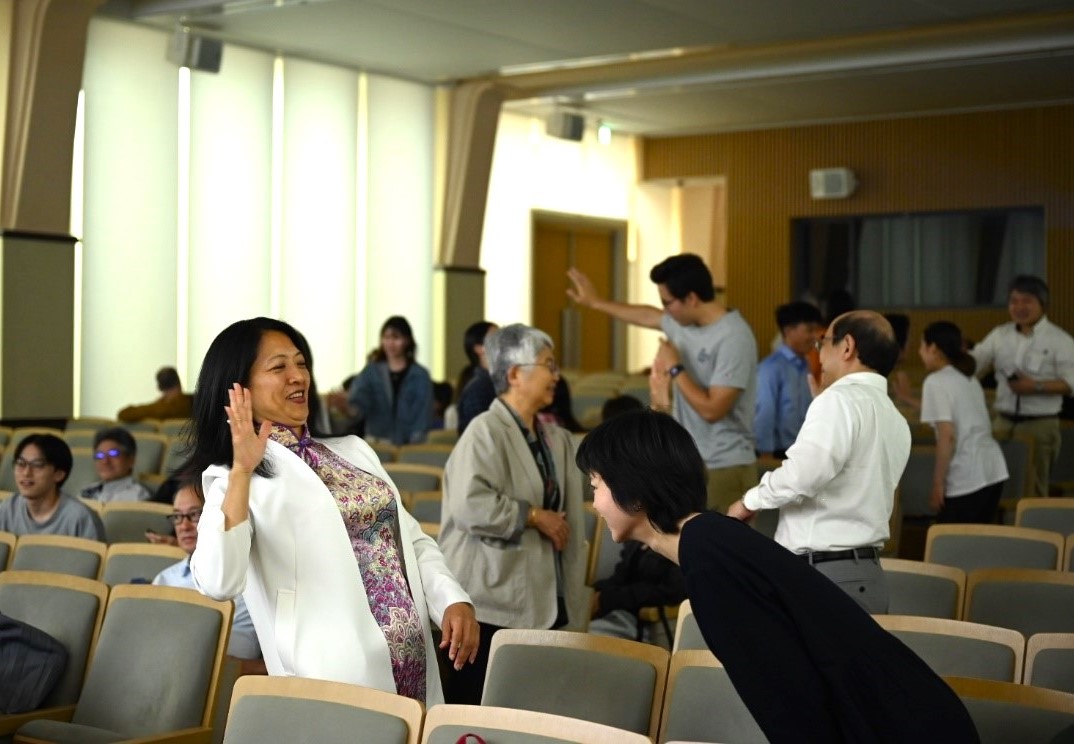Recognising the Invisible: Understanding Statelessness in Asia
Thu, Jun 20, 2024-
Tags
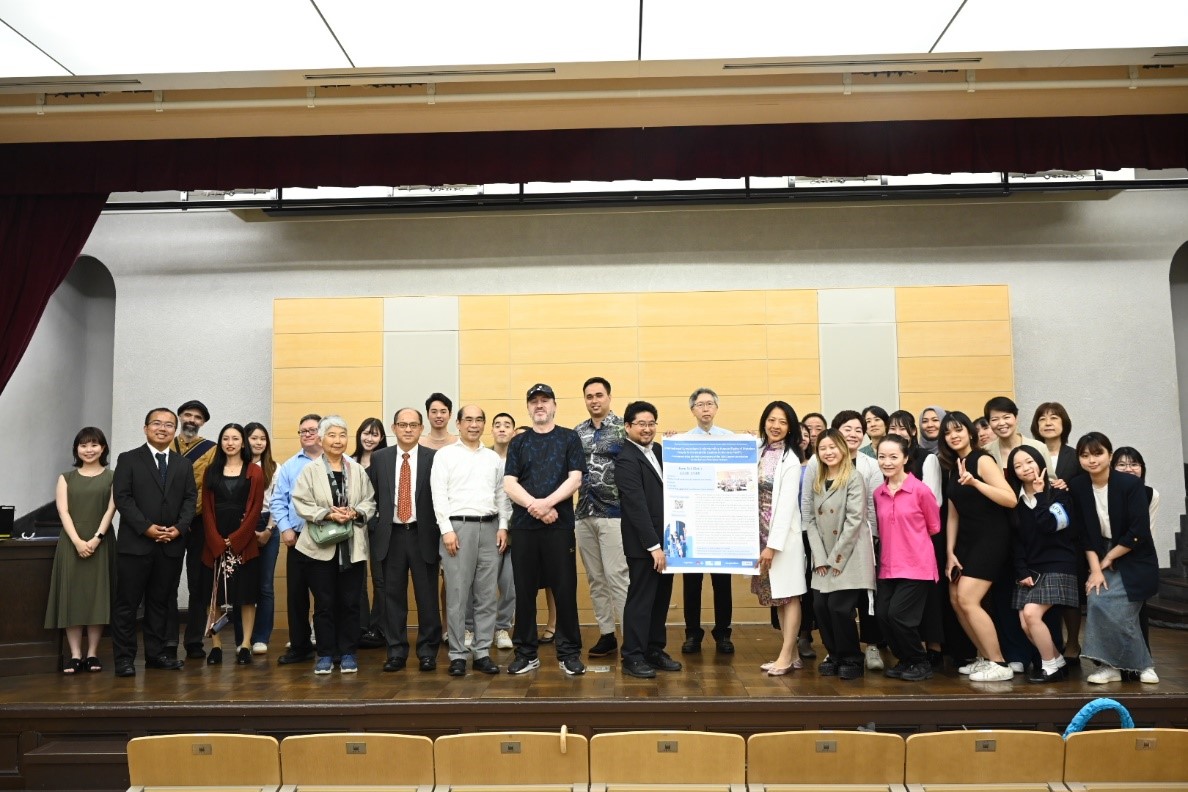
A group photo
From access to healthcare to the very concept of time, the International Symposium: Understanding Human Rights of Stateless People in the Real-life Context in the Asia-Pacific event, held on June 1st at Waseda University’s Okuma Small Auditorium, made me realise just how much of our lives are centred around the construct of a state. Jointly organised by the Waseda School of International Liberal Studies (SILS), the NPO Stateless Network, the student volunteer club Stateless Network Youth and in cooperation with the United Nations High Commissioner for Refugees (UNHCR), the symposium brought together people from different nationalities and even stateless people themselves, and, together, we delved into everything from legal frameworks protecting stateless people internationally, to the song of the Bajau Laut (sea nomads) from the disputed area of Sabah.
Struggles of stateless people manifest in constant tensions with state structures and battles for things as basic as birth certificates. Most of us have the privilege of taking statehood for granted, and so dialogue rarely ever falls on these people with such a vastly different experience. It is precisely because statelessness is so unfathomable to the majority of people that their suffering is rendered silent and invisible, and it is through dialogues like these that light is shed on all of these issues.
The Opening Address and Keynote Speech
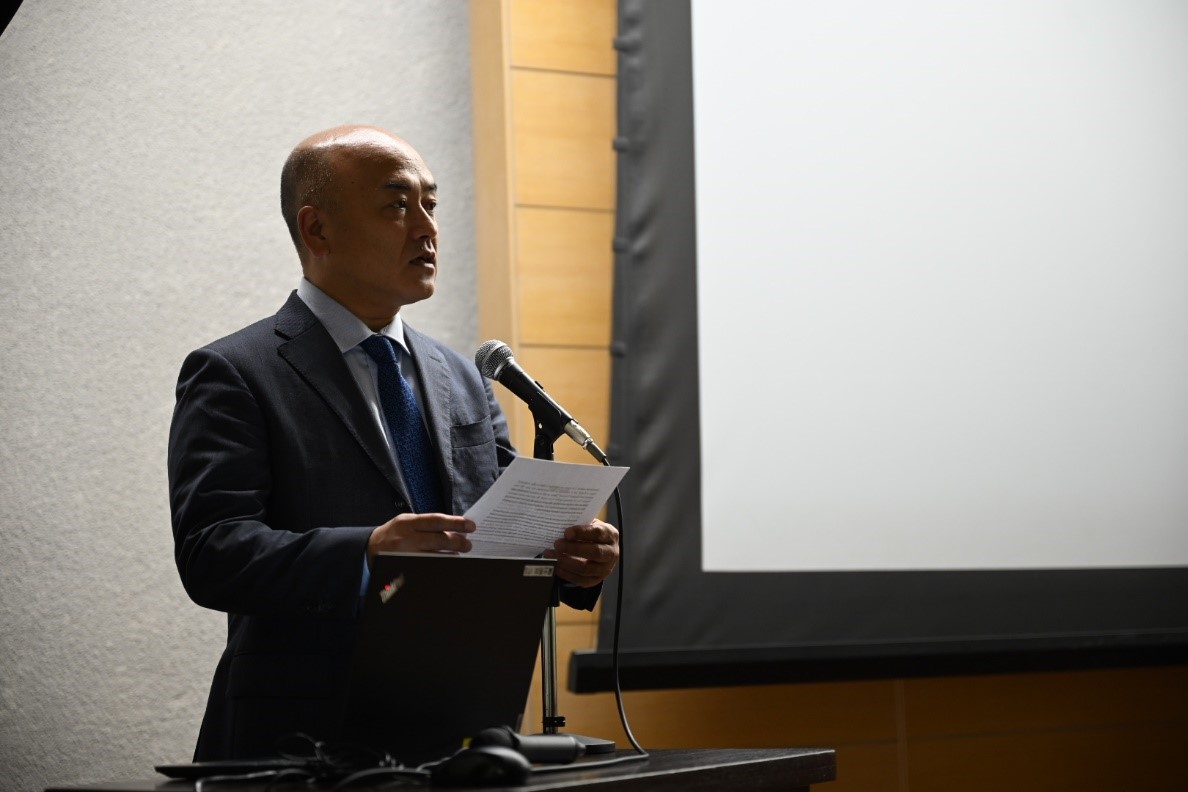
Professor Satoshi Inaba
The opening address by the dean of SILS, Professor Satoshi Inaba, reminded the audience that the very function of university education is to open students’ eyes to issues like these. Evoking the sentiments of Waseda’s founder Shigenobu Okuma and his conceptualization of the school mission, the dean emphasised the importance of cultivating global citizens and education. Waseda itself is increasingly globalised, with over 6000 international students, from an array of countries, even states that could be at war with each other. That message was met with resounding applause; indeed, education enables us to cross borders but also recognise the people who are constrained by their existence.
Mr. Amit Sen, Senior Statelessness Officer at the UNHCR Regional Bureau for Asia and the Pacific, delivered a riveting keynote speech. With his years of experience and expertise in the field, he outlined the existing conventions and international law that states use as a guideline for their own policies, providing a framework through which we could understand the next panellist discussion, which delved into the complexities of statelessness in different parts of Asia and the interplay between international law and national realities.
The Panel Discussion
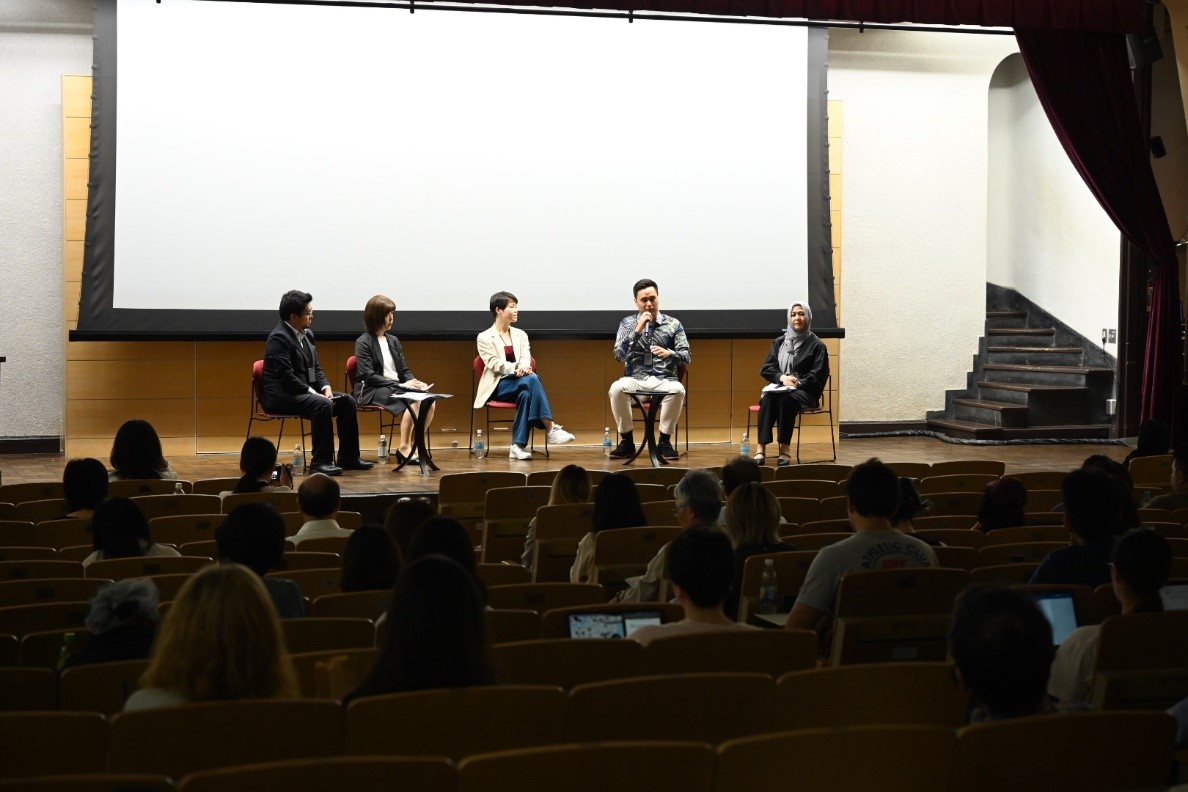
The Panel Discussion
Moderated by University of Tsukuba Professor and Stateless Network Representative Hajime Akiyama, the panel was composed of experts from different countries in Asia and southeast Asia. Different countries tackled the issue of statelessness in a multitude of unique ways, and it was illuminating that ‘stateless people’ is an umbrella term for a group that is very diverse, whose situation changes based on the country that they reside in and their own fluctuations in identity. The panellists raised the multifaceted nature of the issues that stateless people face, from the more upfront issues like attaining employment, to the more unseen issues of psychological distress, the audience was able to gain not only an understanding of the complexities of statelessness and the effectiveness of policies in the region, but also feel a profound sense of empathy for them.
Evocative Workshops and Discussions on Statelessness
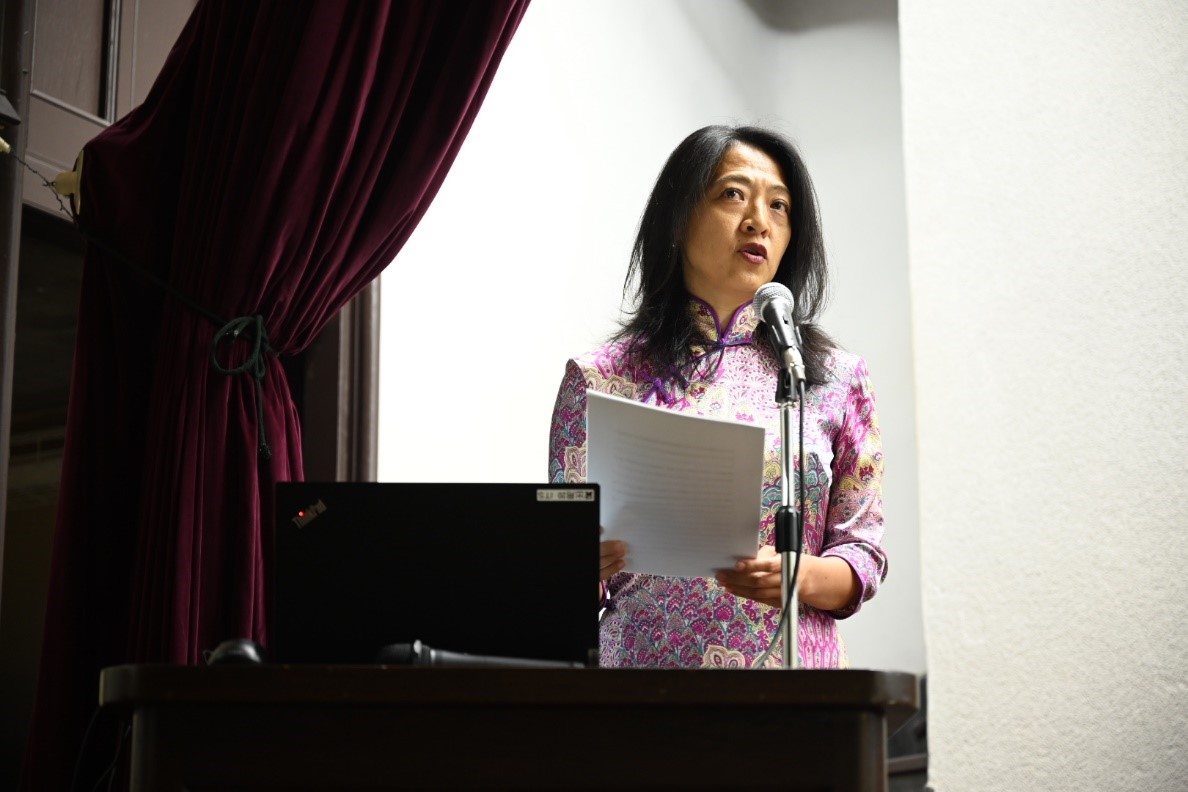
Professor Lara Tienshi Chen
The second half of the event saw a bevy of workshops and discussions on statelessness. The session kicked off with a book review of SILS Professor Lara Tienshi Chen’s latest publication, Stateless, chronicling her own experience as a stateless person in youth, as well as giving a voice to other stateless people in Japan. In the session, dialogues praised the book for its ability to render the invisible so prominent, as well as to highlight the problems of stateless people in Japan on an academic and personal level. One of the people Professor Chen interviewed was in attendance, and he was called upon to share his experiences with us in person. Many of us in the audience would not have known that the man was a stateless person, and through a real-life demonstration, the audience could realise that statelessness is a problem of visibility. He sat with us unnoticed in the audience because statelessness cannot be seen from the outside. As he took the microphone and chronicled the issues he had faced, from not being able to return to his country when Yugoslavia collapsed, to not receiving support during the COVID-19 pandemic like his Japanese neighbours, the audience could witness first-hand the extent to which these people had been overlooked. After the session, I connected with some of the other student attendees, who told me that the most revelational part of the whole event was that people who were stateless also exist in Japan, despite the fact that we do not hear about them.
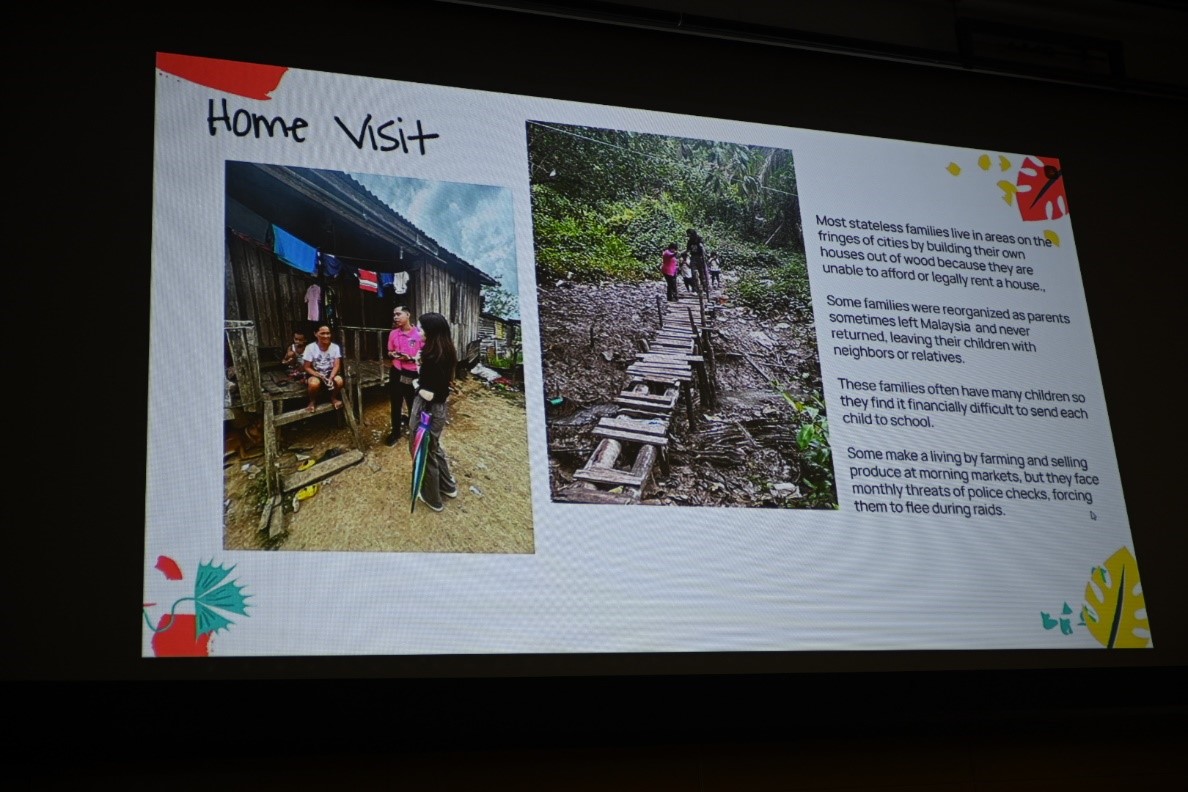
A slide from the presentation by Stateless Network Youth
Following the book review, students of the volunteer circle (club) Stateless Network Youth introduced their cause and their activities in Malaysia, where they interact with children in schools and with stateless people. They told us about their experiences engaging with and helping stateless people, revealing that many had to build their own homes or take in children whose parents had vanished. The stories walked the audience through episodes in stateless people’s lives, from their homes and communities to the schools that they attend, and it was immensely inspiring to know that anyone can participate in these activities and make a difference just as the Stateless Network Youth do.
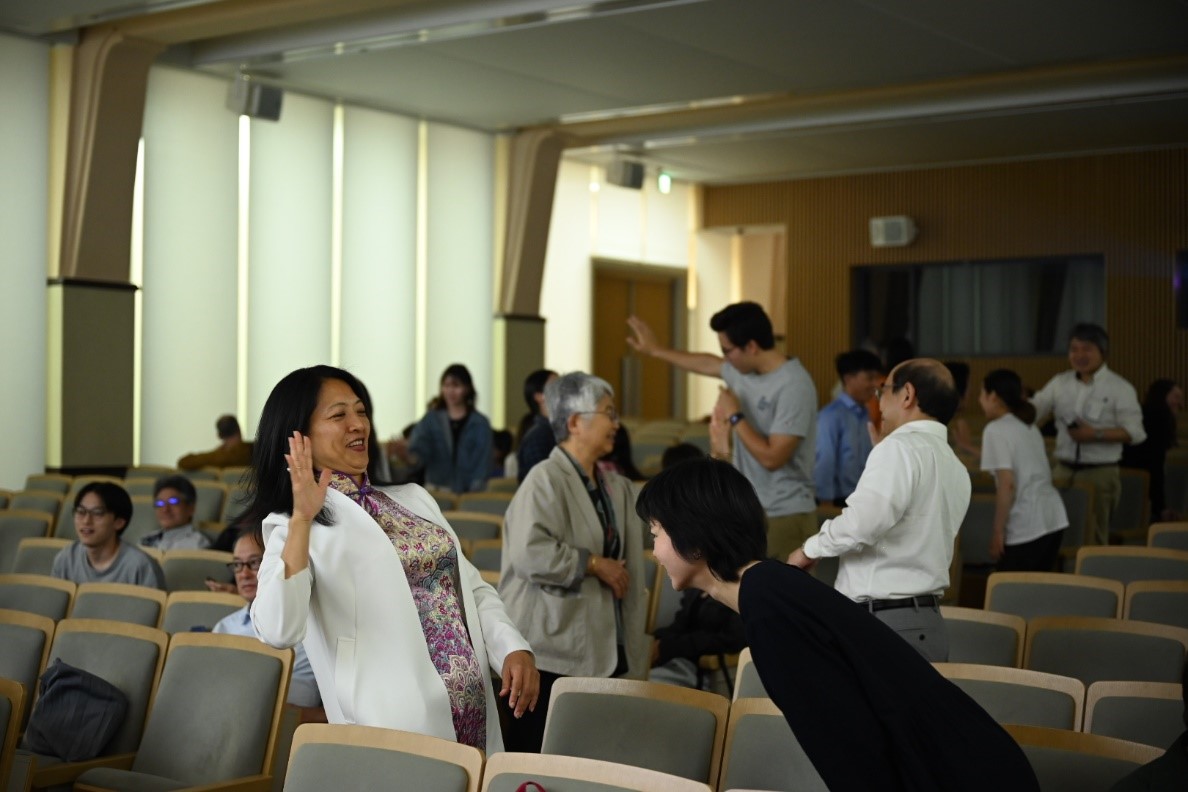
The audience during an interactive workshop
The entire session concluded with an interactive workshop by Waseda Professor Byung-Kwang Yoo and University of California Davis Professor Jon Rossini, who led the audience in acting out scenarios stateless people would encounter in the healthcare system. As an audience, confronted with issues as big as nationality, we often feel helpless or believe that our role functions only as an observer. Through both the presentation by the Stateless Network Youth and the activity conducted by Prof. Yoo and Prof. Rossini, we were convinced that not just governments, but also everyday people like us, are able to do something for stateless people, from simply asking if they need assistance at a clinic to participating in activities to teach stateless children in a whole different country.
Lasting Impressions
In the three and a half hours that we listened, participated, empathised and re-enacted, borders and nationality did not matter, and we could connect with everyone as human beings. Even so, I believe the audience gleaned a greater understanding: even as we laugh and work with people facing statelessness, they face barriers that we cannot see. Even as we navigate borders through travel and living abroad, elsewhere in the world there are people who are bound, instead of empowered, by borders. We were also changed by the knowledge that there are NGOs that work closely with these people and try to plug the gaps that political systems are unable to detect and address. We left knowing that we can contribute in a number of ways, through actively helping these groups, or increasing their visibility. The symposium was held on a year of many milestones: the 20th anniversary of SILS, the 70th Anniversary of the 1954 Convention relating to the Status of Stateless Persons, and the publishing of Professor Chen’s book. As we commemorated these important steps forward, we were constantly reminded of the invisible mountain of challenges still facing stateless people and the immense need to do more.
*This article was written by the following Student Contributor:
Josephine Pau
School of International Liberal Studies


